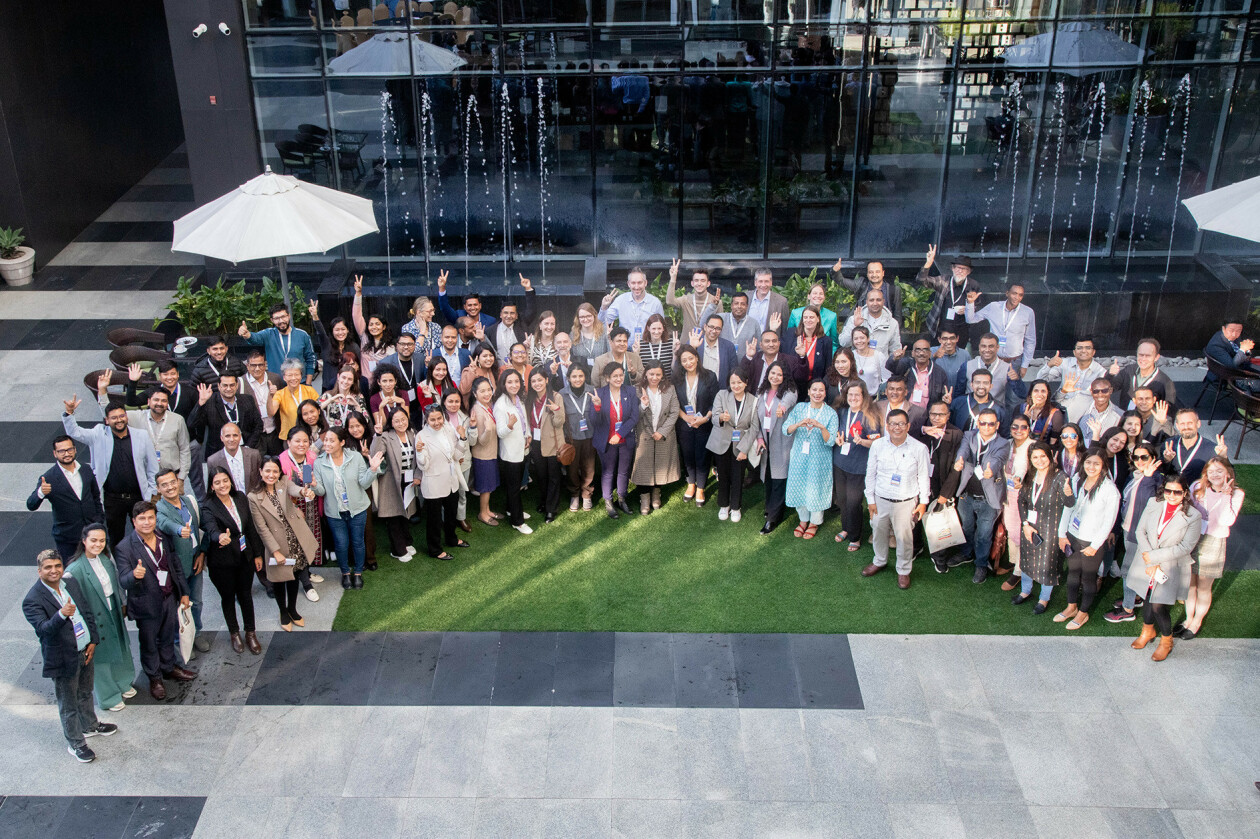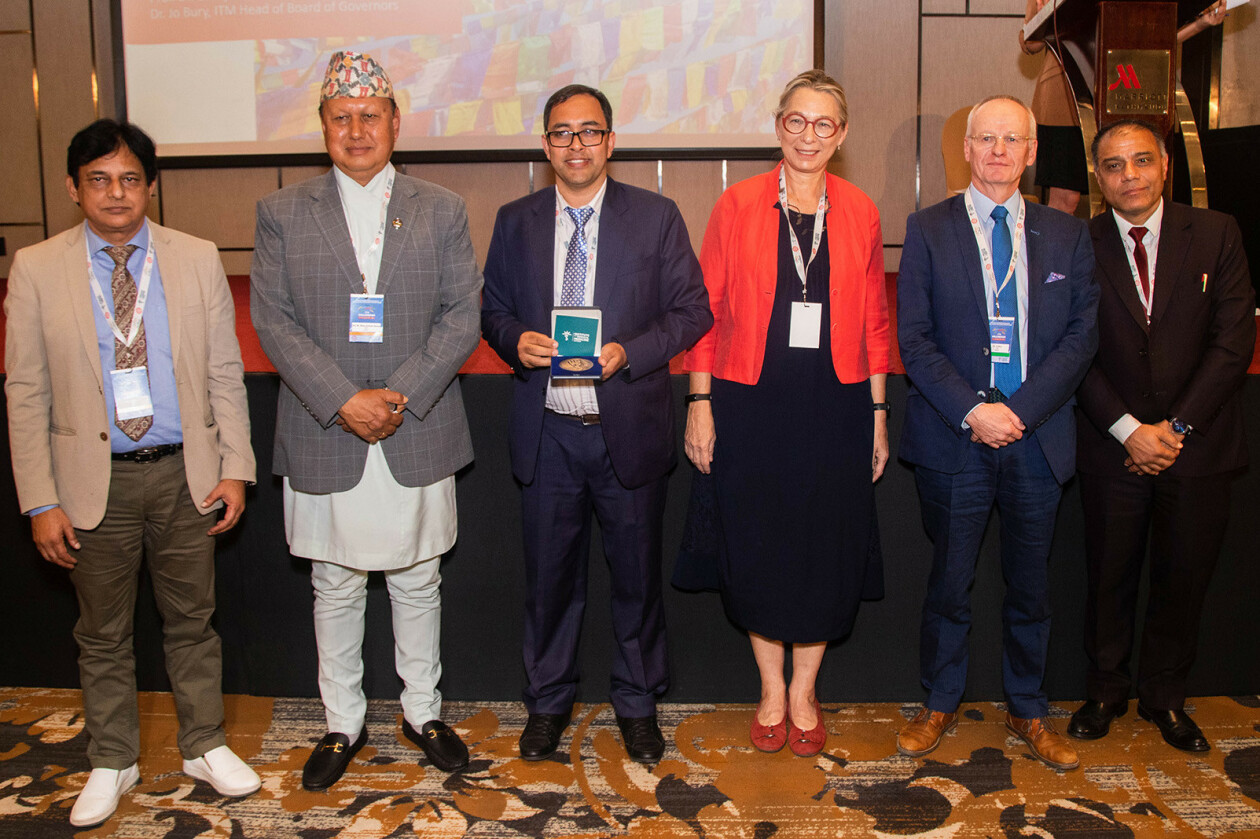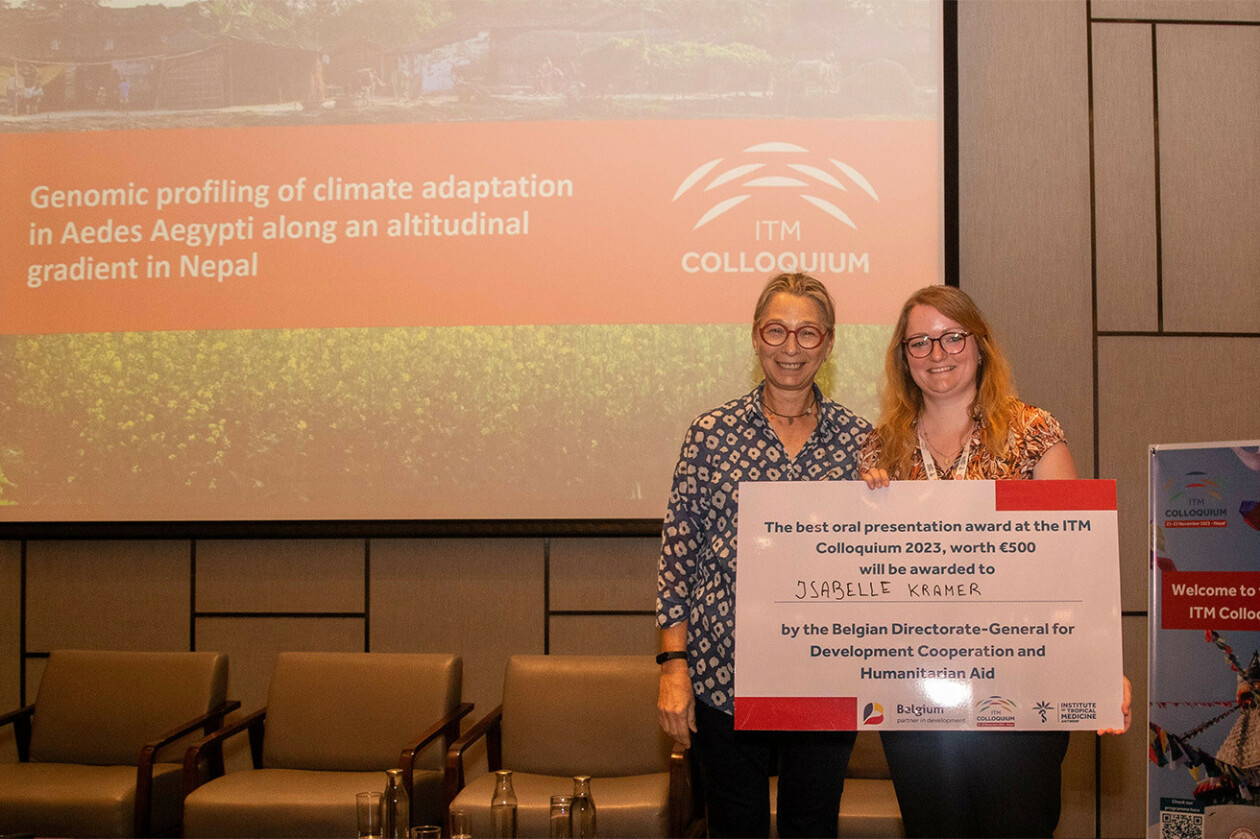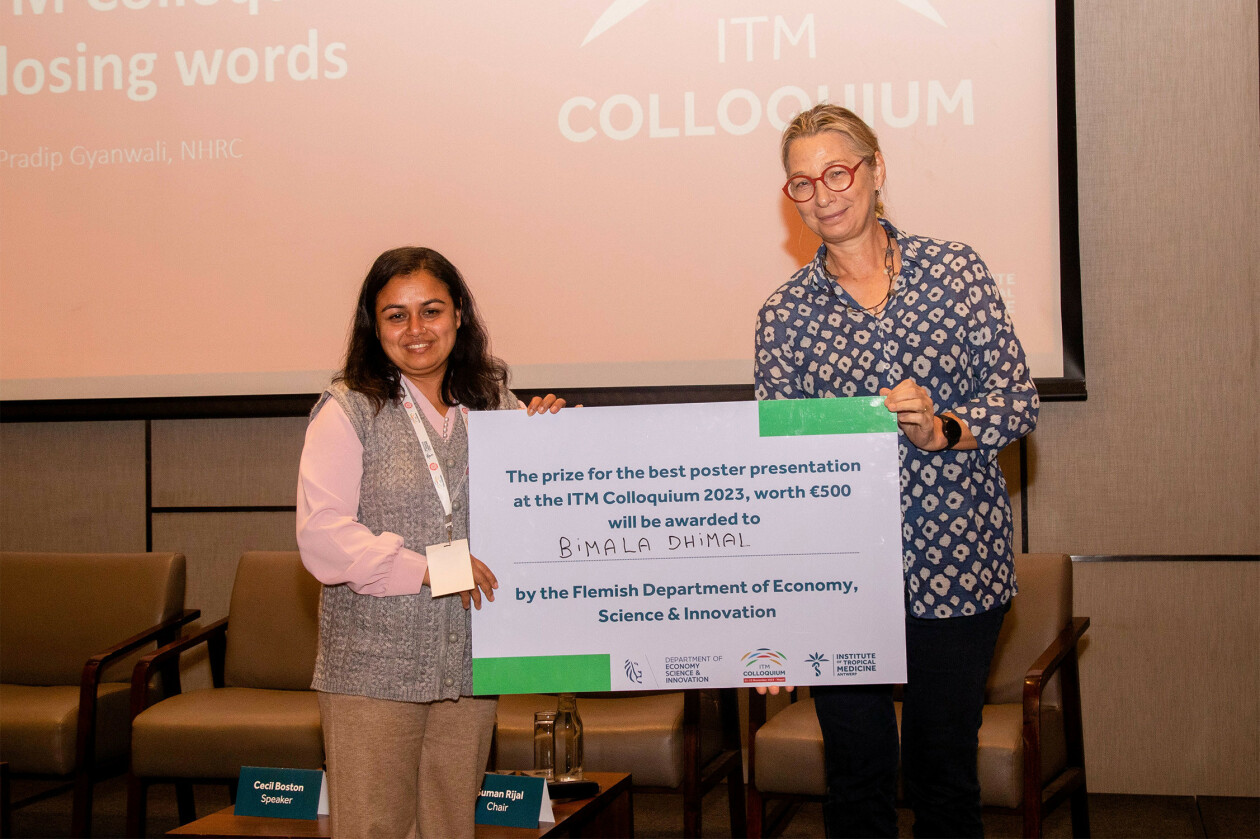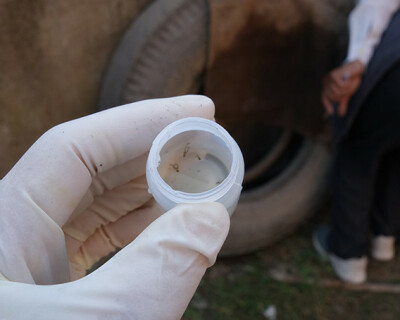On the road towards climate-resilient health systems
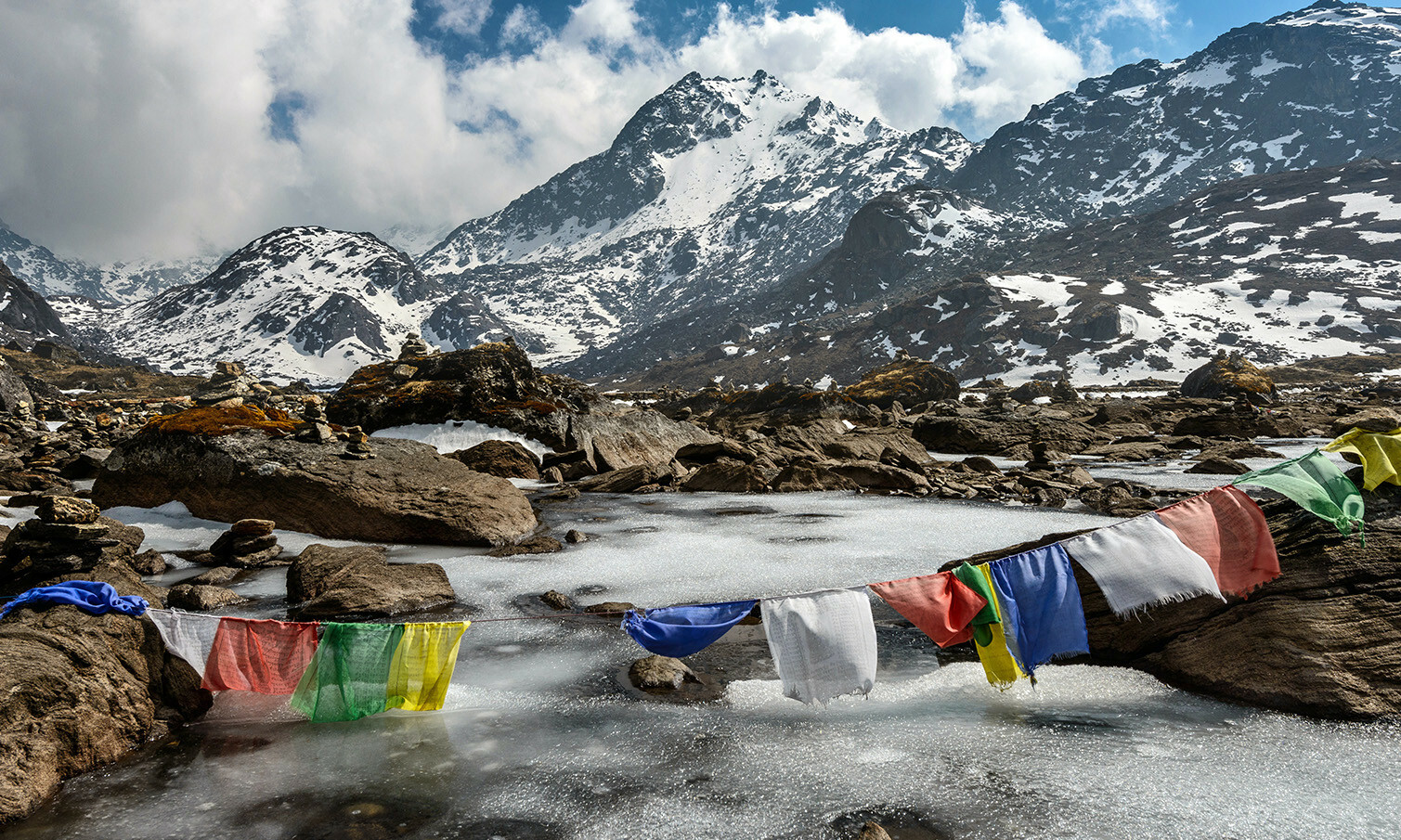
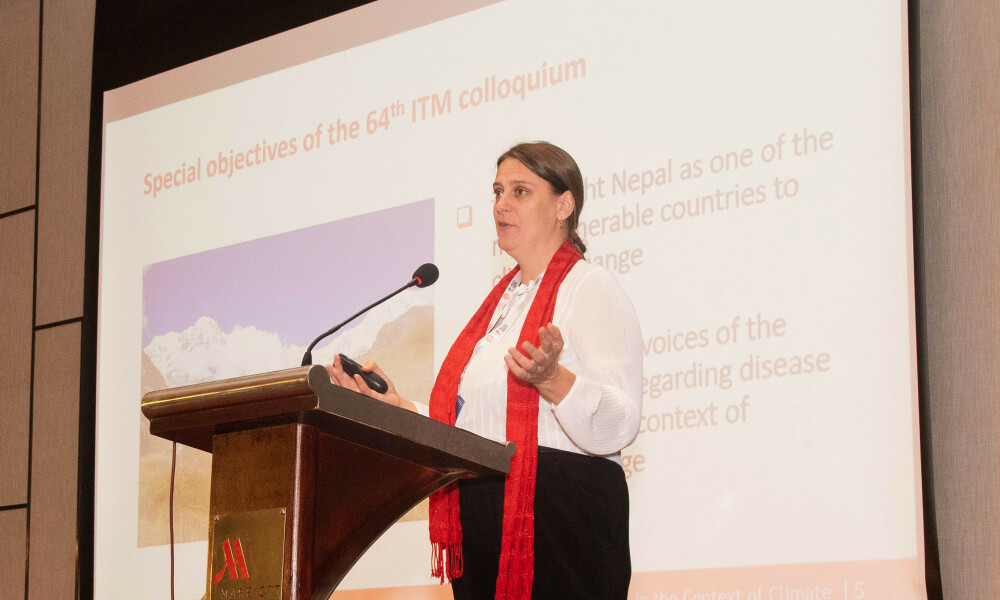
Environmental and health scientists have expressed concerns for many years over the changing weather and precipitation patterns which have expanded the breeding grounds for various mosquitoes that transmit tropical diseases. Experts from different disciplines gathered in Kathmandu, Nepal for the 64th Colloquium of the Institute of Tropical Medicine (ITM) to discuss the alarming climate crisis and its burden on health systems. The event was co-organised with ITM’s local partner, the Nepal Health Research Council (NHRC).
SAMIK KHAREL
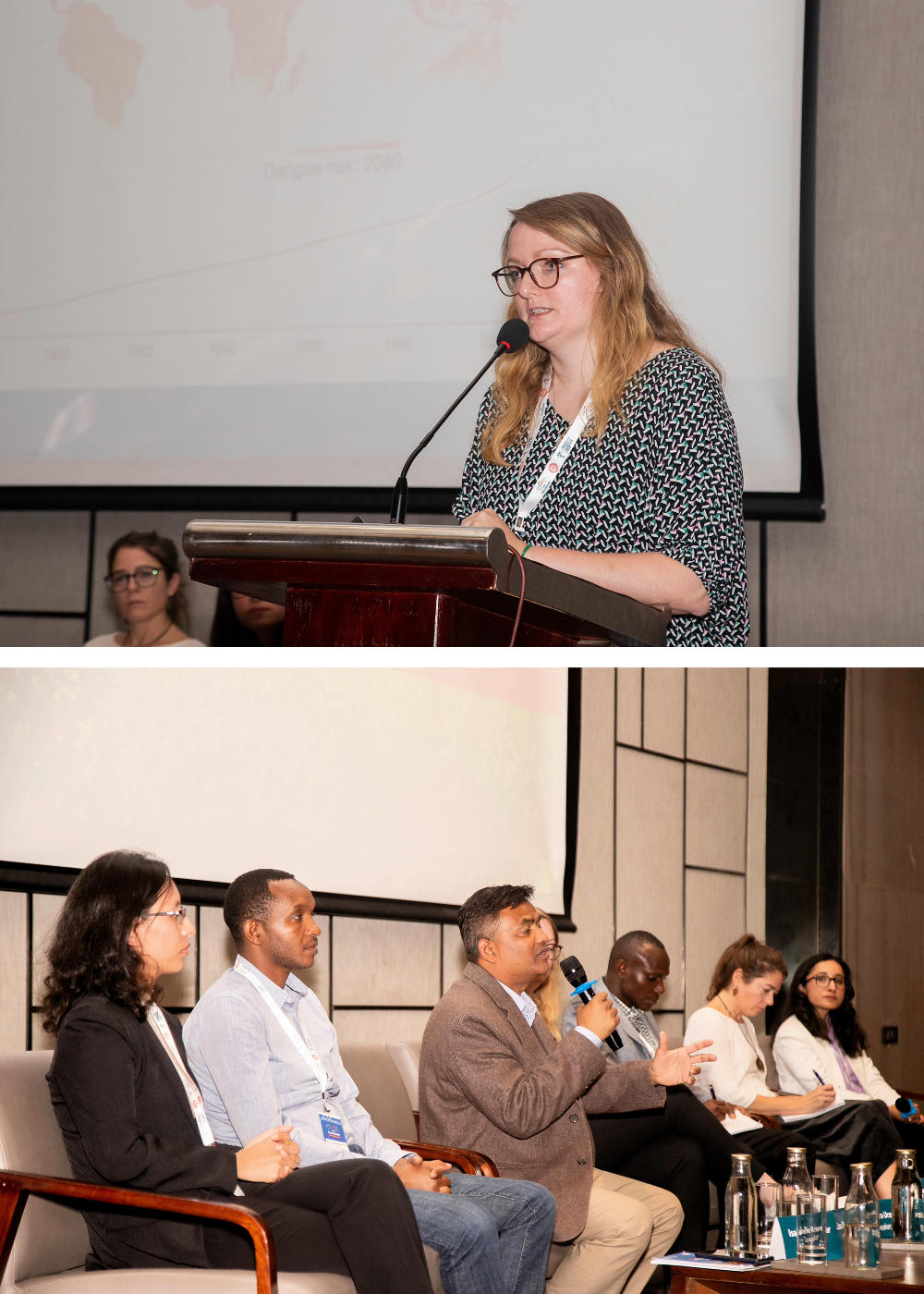
Climate change impact on (neglected) tropical diseases
At the colloquium, plenaries discussed climate resilience and health, highlighting the urgent interventions required from the government, policymakers and donor agencies. South Asian countries, including Nepal with its diverse landscape, have been prone to dengue fever for the past fifteen years. “Dengue is spreading to higher altitudes and adapting to colder climates, which is a threat for the whole world,” said Isabelle Kramer, researcher at the Institute of Tropical Medicine. Since the country’s first dengue outbreak in 2006, it has reached all the districts, even those in the mountainous region. With its range spreading rapidly to higher grounds, the species that cause the so-called ‘breakbone fever’ have been seen at heights of 2000 metres.
Visceral leishmaniasis (VL) researchers discussed the recent geographical expansion of the disease in Nepal, which could be attributed to climate change. “Between 2014 and 2017, there has been a noticeable shift in the recorded cases in Nepal, from the lowlands to the highlands and the east to the west,” said Nepalese epidemiologist Surendra Uranw from B.P. Koirala Institute of Health Sciences. Among these cases, 64% are now reported from mountainous regions which were previously declared non-endemic by the government. Experts assume the geographical expansion is an indication of climate change. “Climate and environmental variables can help us predict transmission risks. Elimination strategies must focus on VL indigenous cases in western Nepal, where cases were reported but not included in recent elimination interventions,” said health geographer Bipin Acharya of Nepal Open University.
Southeast Asia is creating a bottleneck in understanding the complexity of climate change, tropical diseases and insect behaviors. Suman Rijal of WHO-SEARO stressed the importance of a proactive approach to face climate-induced vector-borne diseases. “It is time we strengthen health systems, integrate climate-informed surveillance and enact cross-sectoral policies to protect human health and the environment,” Rijal said.
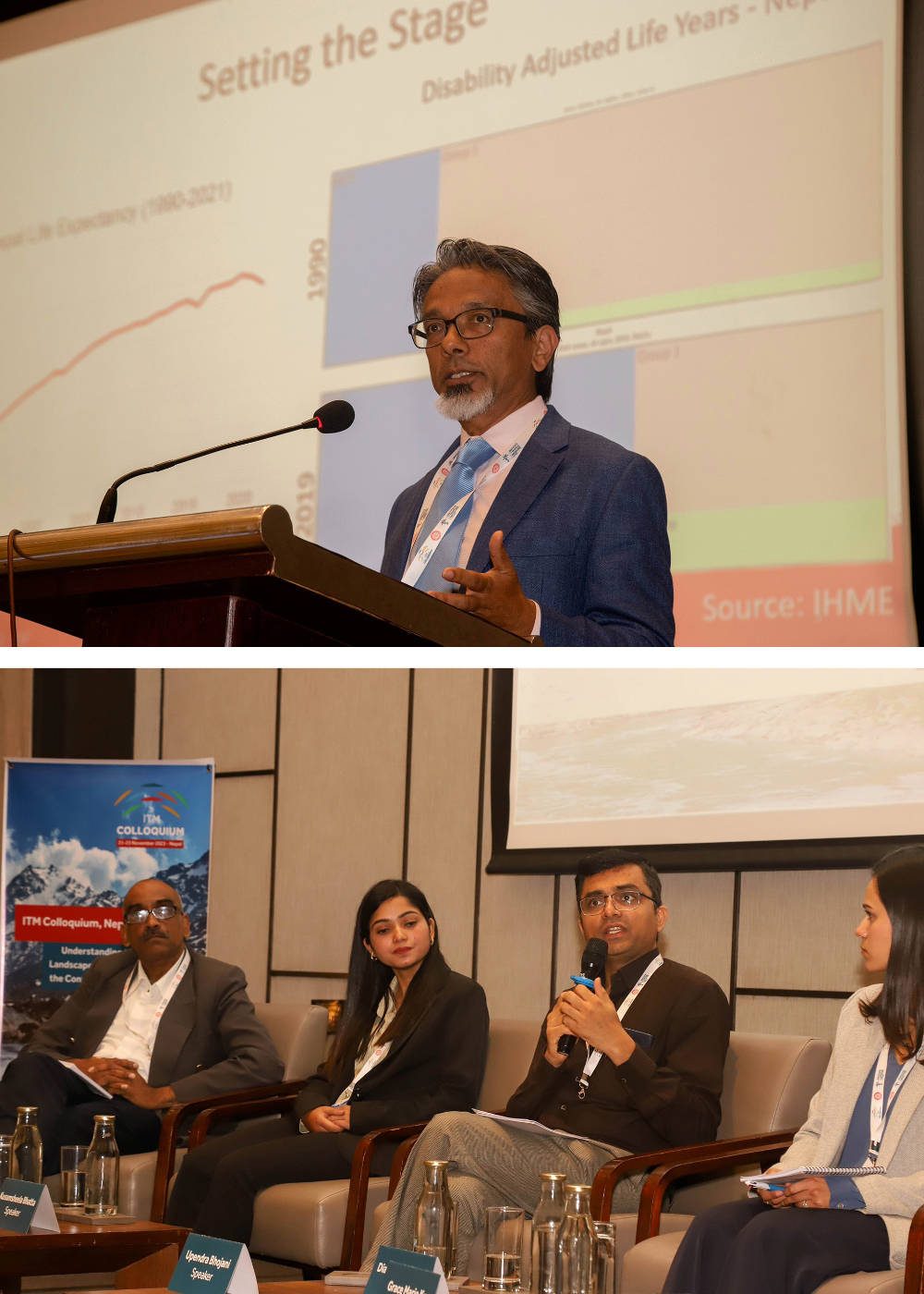
Climate change is putting stress on health systems
Nepali migrant workers returning from the Middle East with dysfunctions like kidney failure have a profound impact on the country’s already fragile healthcare system. “Incidents like these, which get reported in the Western media, have a direct impact on the Global South,” said Amir Sapkota of the University of Maryland, School of Public Health. However, climate change-related extreme weather events will continue despite mitigation efforts. “Societies across the globe must enhance adaptation measures to address these threats and minimise morbidity and mortality due to this crisis,” Sapkota added.
Public health expert Upendra Bhojani from the Institute of Public Health in Bengaluru, India, discussed the effects of tobacco on the climate. It opened the Pandora's box of how the authorities protected the tobacco industries for taxes and businesses, sidelining the toxic sides of its cultivation, production and pollution by waste products and cigarette buds. Scientists also discussed how various countries deal with heat stress and its burden on diseases, water contamination and other forms of pollution, and how social behavior facilitates the spread of tropical diseases. "The level of health risk depends on the effective implementation of Climate Resilient Water Safety Plans (CR-WSP) in the entire process of water supply," said Ganga D Nepal, an expert on Water Supply Sanitation and Hygiene (WASH).
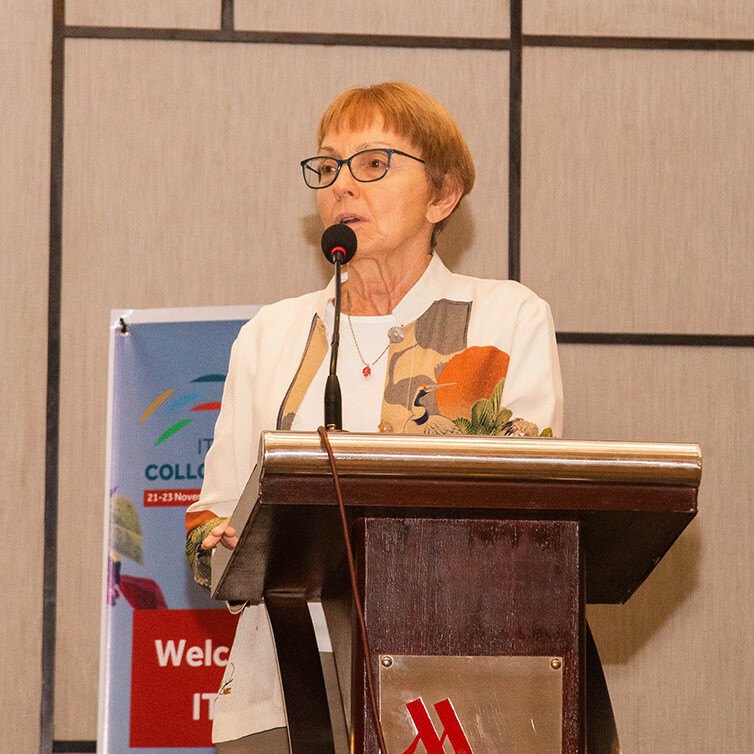
Kristie L Ebi from the University of Washington concluded the conference with a powerful message: "It's time to break down the silos of the health and environmental sectors, address barriers, amplify voices of the most vulnerable and collaborate with stakeholders and policymakers for effective, equitable and health-driven climate change adaptation and mitigation."
Attendees were asked to vote for the best oral presentation and best poster to celebrate the outstanding work of the speakers. They were awarded to respectively Isabella Kramer and Bimala Dhimal. Meghnath Dhimal, Chief Research Officer of NHRC, was awarded the prestigious ITM Scientific Excellence Award for his impressive trajectory in public health and environmental research.
The 64th ITM Colloquium was hosted in Kathmandu from 21-23 November 2023 and was co-organised by the Institute of Tropical Medicine and the Nepal Health Research Council.
Samik Kharel is a freelance writer and researcher currently based in Kathmandu, Nepal.
Spread the word! Share this story on
